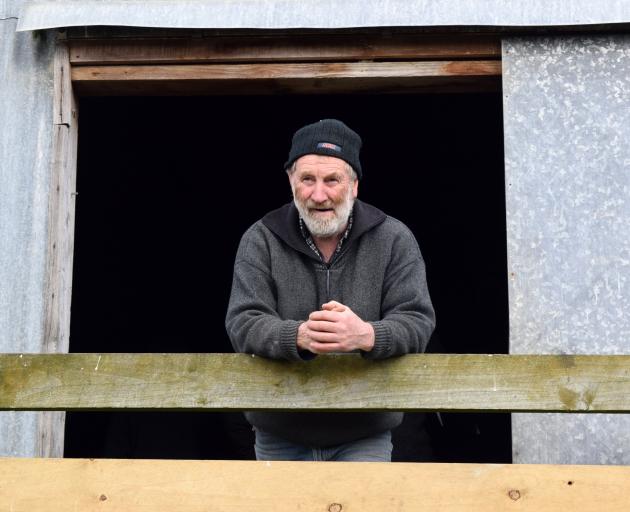Science
Beef + Lamb New Zealand Launches Study on Facial Eczema in Sheep

A comprehensive study by Beef + Lamb New Zealand is underway to examine the impact of facial eczema on sheep farms across the country. The research, led by animal health research principal scientist Cara Brosnahan, focuses on fresh sheep manure and has recently entered its third and final season. This initiative aims to build a clearer understanding of how the disease is affecting livestock and the agricultural sector.
During the second season of the study, low levels of facial eczema spores were detected on four sheep farms in Otago, while one farm in Southland reported spore presence in the first season. The spores, produced by a type of fungus, pose a significant risk to grazing livestock, particularly sheep, when ingested in sufficient quantities from pastures, especially ryegrass.
Farmers participating in the study are notified when spores are found in their manure samples. They are encouraged to continue submitting samples to monitor spore levels. If spore counts increase, farmers are advised to consult a veterinarian. Notably, animals may not exhibit clear clinical signs of infection when exposed to low levels of spores, making monitoring crucial. Subtle indicators of infection can include reduced productivity and increased empty rates during pregnancy scanning.
Understanding the Impact and Risks
Clinical signs of facial eczema have been observed from Northland to the West Coast. More than half of the manure samples collected from farms in the upper region of the South Island showed signs of the disease. The study is also investigating factors such as farm elevation, pasture height, and neighboring spore counts, which may influence the prevalence of facial eczema.
The participation process is straightforward and cost-free for farmers. They are asked to collect manure samples every two weeks from October to May. Beef + Lamb provides the sampling kits and covers postage costs. In addition to receiving results that help them understand their facial eczema risk, participating farmers benefit from a $40 subsidy on faecal egg counts and have the opportunity to be selected for additional testing.
Dr. Brosnahan emphasized the importance of this final season for gathering data. She stated, “We need more farmers to take part, especially if they’ve never had facial eczema detected on their farm before—those results help build our understanding of this devastating disease.” The economic impact of facial eczema on the sector is significant, with estimated costs exceeding $330 million annually.
Farmers are particularly concerned about the potential for liver damage in livestock due to the spores, which can lead to decreased fertility, weight loss, and in severe cases, death. With no cure available, proactive management is essential to prevent outbreaks.
Local Farmer Advocates for Participation
In the Catlins region, farmer Graham Evans is actively participating in the study. He collects fresh sheep manure from his property, Barr Falls Farm, in Owaka, and submits it for analysis. Evans has not detected any facial eczema spores on his farm but recognizes the inevitability of the disease spreading to the south.
He stated, “We don’t know what we don’t know, do we?” He encourages fellow farmers in the southern regions to engage in the study, highlighting that conditions vary significantly across different sheep farming environments.
The study aims not only to protect individual flocks but also to contribute to a broader understanding of facial eczema, ensuring that future generations of farmers are better equipped to manage this pressing issue. Evans hopes that increased participation will lead to a more comprehensive understanding of the disease’s impact and help safeguard livestock across New Zealand.
For more information about the study and participation details, farmers can reach out to Beef + Lamb New Zealand.
-

 World1 week ago
World1 week agoPrivate Funeral Held for Dean Field and His Three Children
-

 Top Stories2 weeks ago
Top Stories2 weeks agoFuneral Planned for Field Siblings After Tragic House Fire
-

 Sports3 months ago
Sports3 months agoNetball New Zealand Stands Down Dame Noeline Taurua for Series
-

 Entertainment3 months ago
Entertainment3 months agoTributes Pour In for Lachlan Rofe, Reality Star, Dead at 47
-

 Entertainment2 months ago
Entertainment2 months agoNew ‘Maverick’ Chaser Joins Beat the Chasers Season Finale
-

 Sports3 months ago
Sports3 months agoSilver Ferns Legend Laura Langman Criticizes Team’s Attitude
-

 Sports1 month ago
Sports1 month agoEli Katoa Rushed to Hospital After Sideline Incident During Match
-

 World2 weeks ago
World2 weeks agoInvestigation Underway in Tragic Sanson House Fire Involving Family
-

 Politics2 months ago
Politics2 months agoNetball NZ Calls for Respect Amid Dame Taurua’s Standoff
-

 Top Stories2 weeks ago
Top Stories2 weeks agoShock and Grief Follow Tragic Family Deaths in New Zealand
-

 Entertainment3 months ago
Entertainment3 months agoKhloe Kardashian Embraces Innovative Stem Cell Therapy in Mexico
-

 World4 months ago
World4 months agoPolice Arrest Multiple Individuals During Funeral for Zain Taikato-Fox





















